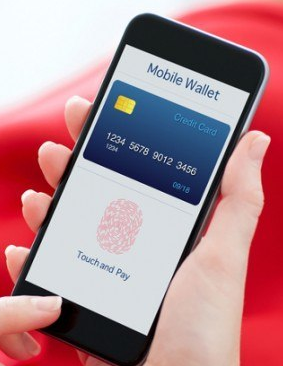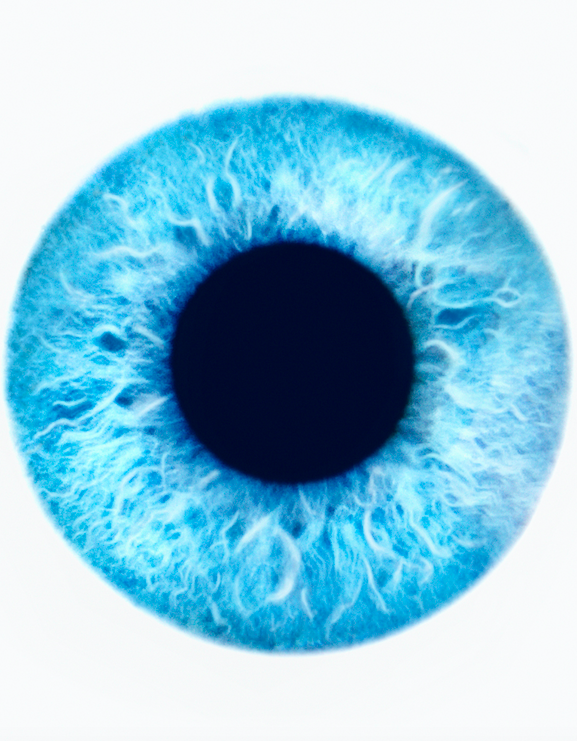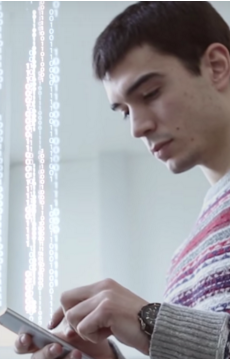Here’s all the news announcements from Day 3 at Mobile World Congress.
Today, biometric firm demo’s the fallibility of smartphone fingerprint scanners using plasticine, Fiat Chrysler brings AR to its marketing, Xiomi unveils Mi5, Visa Ready programme extends to more connected devices and much more.

Smartphone fingerprint sensors fooled by clay digit at Mobile World Congress
Silicon Republic
Advocates of fingerprint sensors, such as Apple, may have their hands full at present with encryption battles, but their moods are unlikely to be lifted by the news that a sensor manufacturer from China has demonstrated how a fake fingerprint mould can fool a smartphone’s fingerprint sensor.
At Mobile World Congress, Vkansee, a Chinese manufacturer of high-resolution fingerprint readers, has demonstrated how a clay mould of a person’s finger could fool today’s fingerprint sensors.
Vkansee president Jason Chaikin demonstrated to the BBC how a clay mould was able to fool existing fingerprint sensors on smartphones because the sensors weren’t high resolution enough. https://www.siliconrepublic.com/enterprise/2016/02/24/fingerprint-sensors-vkansee-mwc-2016
Read more…
Visa Ready Program extended to more connected devices
IB Times
At the MWC 2016, Visa announced that it is expanding its Visa Ready Program to encompass manufacturers of wearables, cars, home appliances, clothing and other Internet of Things (IoT companies. The programme allows partners to incorporate secure payments into their products and services.
To start with, this programme will focus on payments for wearables and automobiles. It is already in conversation with Accenture, Coin, Giesecke & Devrient, Fit Pay, and Samsung, who will work with device manufacturers including Chronos and Pebble, to help embed secure payments into their connected devices.
“More and more, consumers are relying on smart appliances and connected devices to make their lives easier,” said Jim McCarthy, executive vice president of innovation and strategic partnerships at Visa in a press statement. “By adding payments to these devices, we are turning virtually any Internet connection into a commerce experience — making secure payments seamless, and ultimately more accessible, to merchants and consumers.”
Read more…
Fiat Chrysler unveils immersive Augmented Reality app for car sales
i4U
Fiat Chrysler is using innovative technology to sell cars now. At the Mobile World Congress Fiat Chrysler showcased a new car sales app. The app makes use of augmented reality to allow customers to modify features in a car.
In short features of a car can be changed by customers before buying the Fiat car. The Fiat Chrysler app is based upon the Google technology called the Project Tango.
The technology allows mobile devices to “see” what’s around them. The platform uses motion tracking, depth perception, and other services. According to Fiat Chrysler the app prototype allows car buyers to hold a device. From the device they can use the integrated sensor technology and motion tracking.
Read more…
Heptagon demonstrating mobile iris recognition with IriTech at MWC 2016
Biometric Update
Heptagon has partnered with IriTech to demonstrate a mobile iris recognition solution at the Heptagon booth during Mobile World Congress (MWC) 2016 in Barcelona, from February 22 through 25.
The solution uses IriTech’s iris recognition algorithms and software as well as Heptagon’s recently launched mobile imaging demo platform.
The demonstration walks viewers through the complete iris recognition solution for unlocking a smartphone, tablet, PC or any Internet of Things (IoT) product, which could also complement the device’s fingerprint sensors for additional security level.
Read more…
MWC 2016: Xiaomi unveils ceramic-backed Mi5 smartphone
BBC
China’s Xiaomi has unveiled the ceramic-cased Mi5 Android smartphone, highlighting the top-end version of the handset is a fraction of the price of its rivals’ flagships.
The company held press conferences for the launch in Beijing and at Barcelona’s Mobile World Congress.
The European press conference has fuelled speculation Xiaomi is preparing to expand sales beyond Asia and Brazil. However, the company made no mention of any such plan during the presentations.
Read more…
Ocado plans to take its IoT and mobile technology to industries outside grocery
The Drum
Ocado plans to sell the technology and systems it has built for its new state of the art warehouse to other industries, such as airports or mining.
Speaking at Mobile World Congress, head of technology at Ocado’s R&D department 10x Stream, David Sharp, said that once it had launched the technology in its new warehouse, Ocado would sell its internet of things system to other industries that had a need for it.
The business has built a system that allows 1000 robots to help pack grocery shopping. To enable it to happen in the smallest possible space, Ocado had to build a new type of mobile network because “wifi is too slow, it doesn’t scale to 1000 robots and 5G isn’t here”.
Read more…
Samsung Pay bank availability to expand in South Korea
ZDnet
Samsung Pay is set to expand to multiple banks in South Korea following high-demand from consumers six months after the service launched, the company said.
The company’s mobile payment solution has been available for use at Woori Bank’s ATM machines, and was heavily promoted following its launch last year.
Woori Bank members with Samsung Pay-supporting smartphones are able to use them to activate readers in ATM machines and withdraw money.
Read more…
This new technology will let you download 23 movies in one second
Business Insider
A new wireless internet technology called LiFi is so fast it’ll let you download “23 DVDs in one second,” according to Suat Topsu, founder of French LiFi startup Oledcomm (via AFP).
LiFi technology, short for Light Fidelity, uses light from LED bulbs to transmit internet data instead of the radio waves our WiFi routers currently broadcast.
The LED light bulbs flicker extremely quickly to emit a frequency of light that can transmit data at incredible speeds —up to 200 Gigabits per second, which is insanely fast.
“Li-Fi allows speeds that are 100 times faster than WiFi,” Topsu told the AFP.
Oledcomm demonstrated its LiFi technology at MWC by streaming a video on a smartphone placed under a lamp fitted with an LED light bulb. The smartphone was reportedly not connected to WiFi routers or anything else that could provide an internet connection. It was wirelessly connected to a light bulb, which is a pretty weird thing to type or say out loud.












